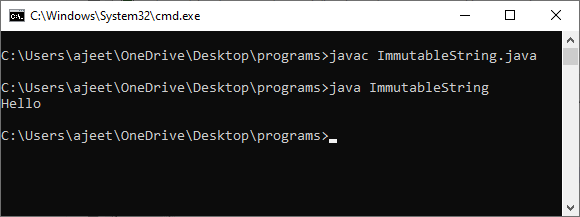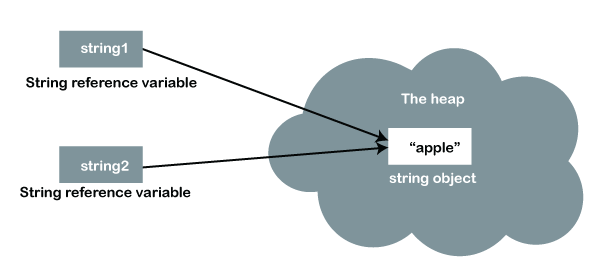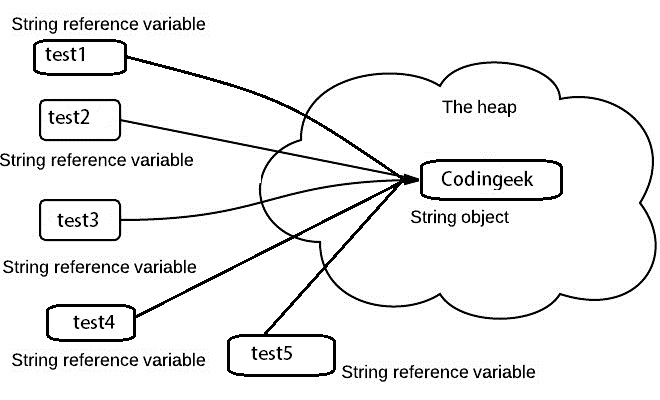Why Are Strings Immutable in Java? Recognizing the Core Principles
Why Are Strings Immutable in Java? Recognizing the Core Principles
Blog Article
What Is Unalterable Strings and How It Functions
In the realm of programming, comprehending the idea of immutable strings is vital for developing durable and secure applications. Immutable strings describe strings that can not be modified after they are created, ensuring information stability and predictability within the code. This essential concept plays an important role in different shows languages and provides a special method to dealing with information. By exploring the details of exactly how immutable strings operate, one can uncover a world of benefits and opportunities that can boost the quality and effectiveness of software application advancement.
The Fundamentals of Immutable Strings
Immutable strings, as an essential principle in shows, are personality sequences that can not be transformed when they are produced. This suggests that when a string is appointed a worth, that value can not be modified. In languages like Python and Java, strings are immutable objects, causing numerous ramifications in terms of memory monitoring and information honesty.
One of the vital benefits of immutable strings is that they supply a complacency in information adjustment. Because the content of an immutable string can not be modified, it ensures that the original data remains undamaged, decreasing the threat of unintended modifications during program implementation (Why are strings immutable in Java?). This residential or commercial property additionally simplifies debugging procedures, as programmers can rely on that when a string is defined, its worth will not be inadvertently altered
When a new string is produced based on an existing one, rather than customizing the initial string, the brand-new value is saved independently. Generally, understanding the fundamentals of unalterable strings is essential for understanding programming principles and enhancing code efficiency.
Benefits of Unalterable Strings
Building upon the safety and efficiency benefits of unalterable strings, their advantages encompass boosting code integrity and simplifying simultaneous programming jobs. By being unalterable, strings can not be customized after development, which eliminates the danger of unintentional adjustments in the information they save. This integral immutability ensures that as soon as a string is produced, its value continues to be consistent throughout the program's implementation, reducing the chances of insects brought on by unexpected changes.
In addition, unalterable strings add to code dependability by making it easier to reason concerning the state of a program. Because strings can not be changed, programmers can trust that a string will always hold the very same worth, simplifying debugging and upkeep initiatives. This predictability leads to a lot more stable and reliable codebases.

Implementation in Shows Languages
Within numerous programs languages, the incorporation of unalterable strings is a basic aspect that affects just how information is dealt with and manipulated within code structures. The application of immutable strings varies across various programming languages, with each language using its very own mechanisms to sustain this concept.

In contrast, languages like C and C++ do not have integrated support for immutable strings. Programmers in these languages should by hand apply immutability by implementing policies within their code to prevent straight modifications to string items.
Finest Practices for Functioning With Unalterable Strings
When dealing with unalterable strings in shows languages like Java and Python, adhering to ideal methods makes certain efficient and safe data manipulation. Among the essential finest techniques is to utilize StringBuilder or StringBuffer rather than directly manipulating strings, especially when managing comprehensive concatenation procedures. These courses give mutable choices for string manipulation, aiding to avoid unneeded memory allotments and boosting efficiency.
One more ideal method is to utilize string interpolation or format operates offered by the language rather of hand-operated concatenation. This not just improves readability yet likewise aids in avoiding typical mistakes such as unintended string adjustments. Furthermore, when dealing with sensitive information such as passwords or API secrets, it is crucial to prevent saving them as simple message in unalterable strings. Using safe storage mechanisms like char arrays or best site specialized libraries for managing sensitive info aids minimize safety risks connected with unalterable strings.
Real-world Applications and Instances
Exploring practical applications of unalterable strings in different industries discloses their considerable influence on information stability and system dependability. In the healthcare market, immutable strings play a vital duty in making certain the security and privacy of person data. By protecting against unapproved modifications to delicate details such as clinical documents and Full Article prescriptions, immutable strings assist maintain compliance with stringent personal privacy laws like HIPAA.
Banks additionally gain from the immutable nature of strings to improve the security of client information and transaction documents. Unalterable strings aid prevent scams and unapproved modifications to economic information, offering a durable defense versus cyber risks and making sure the depend on and confidence of customers.

Conclusion
Finest practices for working with unalterable strings consist of staying clear of straight alterations and making use of approaches that return new string items. Real-world applications of immutable strings consist of information security, caching, and string adjustment jobs.
Immutable strings refer to strings that can not be altered after they are developed, guaranteeing information stability and predictability within the code. When a new string is developed based on an existing one, rather than modifying the original string, the brand-new worth is saved independently.In languages like Java and Python, strings are unalterable by default, meaning that as soon as a string things is produced, its value can not be transformed - Why are strings immutable in Java?. Best techniques for functioning with unalterable strings consist of avoiding direct alterations and making use of techniques that return brand-new string things. Real-world applications of unalterable Visit Website strings consist of information security, caching, and string adjustment jobs
Report this page